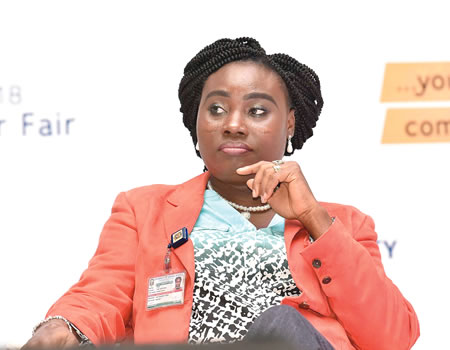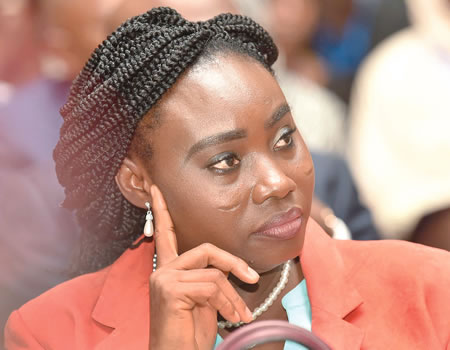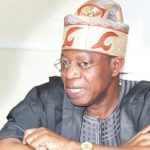ALSO READ: FG begs ASUU to make sacrifice, suspend strike in nation’s interest
What was growing up like for you?
I was born and bred in Ibadan. I was raised by parents who put a lot of value and premium on education. We had no choice than to go to school. One thing, I can say made me to be a strong person was that in my father’s house, gender did not matter. We were treated the same and given the same opportunities. That actually coloured the way I see myself. I never felt as if I had any limitation or something was impossible for me to achieve as a woman. The fact that I was a girl-child didn’t mean anything. That is why, I am very sensitive to gender nuances, if you want to do something and you say it is a woman’s responsibility, my hackle rises. I always tell my only daughter that I don’t want to raise a weak girl because it is more injurious to the society when a girl is weak. That is the truth. I am a product of the University of Ibadan. I had my first, second and third degree from UI.
What informed your choice of career?
In our generation, we were zoned into disciplines; if you are good, you go to Sciences, if not so good, you go to Arts or Social Sciences, which was wrong, because your disciplinary aptitude is about the way your brain is wired and your interest, no discipline is better and/or smarter than the other. Indeed, no profession is superior to the other. If I had a choice, I would have gone into the Arts or Humanities, I read a lot, there is no day I don’t read. Having studied sciences, my parents wanted me to study Medicine but I didn’t meet the cutoff point and eventually did a change of course to Veterinary Medicine based on a challenge posed by late Prof Oladosu that the course would be too hard for me to cope. I did my Masters in Veterinary Public Health, a dynamic specialty and for my PhD, I did Aquatic Epidemiology and Toxicology, it has to do with how human activities affect the environment, how it in turns affect animals and humans popularly referred to as “One Health.” If there is a negatively impact on the environment, it will affect animals and humans. So, I decided to focus on aquatic environment, how pollution affects water, fish, other wildlife, livestock and humans. That is where my research interest is. When I told my supervisor what I wanted to do he said that means you will have to supervise yourself. That was not his area, so, I had to read wide then bounce ideas off him. That really helped me to carve a niche in a very small area. That impacted on how I was able to progress rapidly my career because everything I had to say was news. In 2006, I got an award from Society for Toxicology, USA for my research into an under-represented field.
What price did you pay to get to where you are today?
I didn’t pay any price. I think University of Ibadan is very fortunate to have a Vice-Chancellor who wants to do it right. And part of wanting to do it right is to surround yourself with the right people that you think can deliver. I am not subject to political motivations, for me, actions have to make sense, be logical and fulfil a purpose. Once I see any sign that it is not logical, I don’t want to waste my time with it. When the VC told me he wanted to nominate me for the post I asked him why? I also told him I am young for the post. His answer was that at my age Olajuwon Olaide was a Vice Chancellor of the University of Ibadan, and I consented to be nominated because I saw that he believed in my ability. The Vice-Chancellor and I had served together on Committees when he was the Dean of the Post-Graduate School and he had also given me some assignments as Deputy Vice-Chancellor (Academic), I guess having watched me over the years, he believed I can do it. Therefore, what drives me as the DVC (Research, Innovation and Strategic Partnerships) is the need to justify the position.
How has the journey been so far?
This office is basically about town and gown relationship. I call myself the marketing officer of the university, while the VC is the chief marketing officer. I relate more with people outside the university community. It is also about making our research more visible. We have metrics now to rank universities and the more competitive a university is, the more highly ranked it is. Part of the metrics apart from stringent admission process, lecturer-student ratio is the impact of the research emanating from the University, as well. How can we make impact with our research when our research is on the shelf? So, it is about how we will collaborate more with the town (populace, private sector and government). The research we are doing in Agriculture for instance, how do we get it to the farmers? Strategic partnership is about collaborating with the private sector, so that the University has more impact on the society and sustainable development of the country. We are also working on improving the employability and entrepreneurial skills of our students. In June, we had Beyond Smart Master Class for some of our final year students with First Class, Second Class upper and Distinctions. We brought an HR person to teach them emotional intelligence, how to apply for jobs and even did a mock interview for them, and entrepreneurial mindset development training. It was a two- day event. Also, on the November 6, 2018, we organised the first ever, Career Fair in collaboration with the First Bank of Nigeria (a partnership model). The Career Fair was an event where organisations spanning diverse industries and sectors were given an opportunity to engage the exceptionally talented final year students of the university. We intend to bring back the good old days; graduates of the University of Ibadan have no business walking about looking for jobs; they are the crème-de-la-crème of graduate population; we only admit the top 10 per cent.
With all these engagements, how have you been combining your career with the home front?
I am somebody that has a very strong sense of family. My family is very important to me. As a Deputy Vice-Chancellor, if my son calls me now, I will break whatever I am doing and pick it up. My daughter once said, ‘Mummy, when I send you WhatsApp message, it is like you are waiting at the other end to receive it.’ I told her it was because she is a priority. My children are priority because I cannot afford to fail. So, I try to juggle my responsibilities to ensure that I do not fail God, myself, husband and my children. What I do is to prioritise what is important to me. I don’t waste time. I have zero tolerance for gossips, owambes, time wasting and/or unprofitable activities. I plan ahead and organise myself focusing on what is important. Time is the most valuable currency; you can’t get it back or buy it so you have to use it wisely.
In times past, university professors were perceived to be boring, and mostly elderly men and a few women who were not fashion conscious. But these days, we have many young and trendy female professors. What is responsible for this?
I think over the years, women are growing into their roles with more confidence. We have more people sending their girl-child to school and even within the university environment, you will see that women are holding their heads up more. From our results, girls are consistently outperforming boys. In Nigeria, because of our cultural leaning, if you don’t marry the right person you won’t go far in life and that is why most women have had to make the choice of either keeping their home or career. I mentor young girls and I tell them that, don’t look for a man to complete you, you are enough, whole, so, have a vision, mission, goal and align with a partner who will help you to achieve them. So, marry your friend and a man that is strong enough, secure in himself enough to support you in your career.
The other aspect is that our society is a bit more relaxed and giving women more opportunities (or we are taking it).
Finally, as a Christian, I understand the God factor, the Bible says, ‘It is not of him that wills or of him that runs, it is the Lord that shows mercy.’
What advice do you have for young woman?
If I will talk generally, I will say we are failing our children. We are over-parenting them. It is worrisome that young adults are unable to take responsibility for their life. Parents of this generation have this concept of “I don’t want my children to suffer the things I suffered,” forgetting that it is the so-called suffering that gave them the resilience they have today.
What makes them the survivors that they are today. I am not saying we should stress our children, but we must give them the right values. We live in a generation where people go to beat up teachers for disciplining their children. I was raised in a generation where when you do something wrong, an adult would have disciplined you before taking you home to plead to your parent not to discipline you because they had already disciplined you.
Your parents will still discipline you at home for spoiling their name, so, I don’t understand this idea that we must not discipline our children. We have this generation that I call feeding bottle and pampers generation. They can’t lift a finger to do anything for themselves.
We need to train our children. Let your children know that nothing in life comes easy, nothing is handed to you, hard work is the only way, there is dignity in labour and teach them to value money and that it should be earned.







